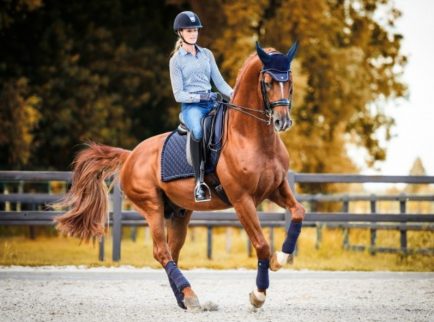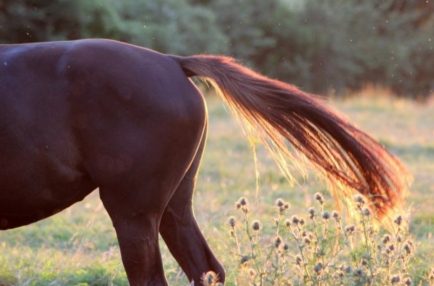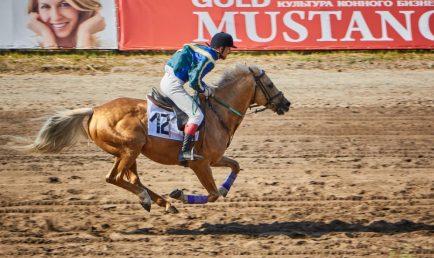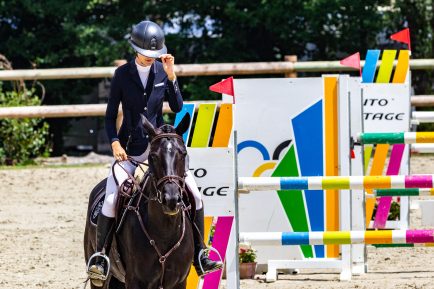Joint injections are commonly used to relieve pain and improve movement in horses. So, just how much are joint injections for horses? If you are considering getting joint injections for your horse, you will want to get a good idea about how much they cost.
Joint injections are a common practice among sport, show, and performance horses. Veterinarians may administer them for various reasons depending on if they think your horse can benefit from them. Though joint injections are a common procedure, they can be expensive and there are risks that can come with them.
What Are Joint Injections For Horses?
Joint injections for horses are generally used for horses with osteoarthritis, navicular ailments or other lameness conditions. They are used to decrease inflammation which, not only reduces the pain associated with osteoarthritis and lameness, but also temporarily stops the cycle of joint inflammation.
Joint injections are commonly administered by veterinarians. Sedation is oftentimes used in order to help get the horse to stand still for the procedure.
Where Are Joint Injections Administered?
Joint injections are generally given on the hock joints. The hock is comprised of several hock joint spaces that for injection purposes are referred to as the lower, middle and upper hock joints.
The upper hock joint is most responsible for most of the motion of the hock joint. It is the part of the joint that makes bending happen. Generally, it is not common for show horses to have primary upper hock issues, though it may happen. Most show horses get hock injections in the lower and middle hock joints, which are two very low-motion joint spaces.
Though the hocks are normally the most common area for joint injections, there are also other joints on the horse that can benefit. Other places that may receive joint injections include the stifles, knees, fetlock, pastern and coffin joints.
Types Of Joint Injections
There are three FDA-approved joint injections: intra-articular (IA), intravenous (IV) and intramuscular (IM). The type veterinarians will use depend on the horse’s use, soundness problems and what joints are affected.
Intra-articular
Intra-articular is a solution that is injected directly into the joint of a horse. It must be administered by a licensed veterinarian under sterile conditions that has experience with the technique. By administrating an intra-articular injection, veterinarians can maximize the effect of the medication as they are able to inject it exactly where it is needed.
However, it does tend to be more expensive and it can come with some risks. FDA-approved drugs for IA injection include Legend (hyaluronate sodium) Injectable Solution, Adequan I.A. (polysulfated glycosaminoglycan) or PSGAG. In addition, there are the corticosteroids Depo-Medrol (methylprednisolone) and Vetalog Parenteral Veterinary (triamcinolone), which may be administered by themselves or along with hyaluronic acid.
In some cases, a small amount of antibiotics are given for infection control purposes. The injection site is thoroughly washed and rinsed with alcohol before the injection, while sometimes the area is clipped as well. Horses are generally given stall rest after the injection for one to two days.
Intravenous – How Much Are Joint Injections For Horses?
Intravenous or IV injections are generally administered on the most accessible vein in the horse, which is the large jugular vein found on both sides of the neck. The only FDA-approved intravenous joint therapy is Legend, which requires a prescription to purchase.
A qualified owner or trainer who has been instructed in the proper IV administration of medication can give a horse Legend. Legend is specifically made for treating joint dysfunction of the knee and fetlock.
Intramuscular
There is one form of FDA-approved intramuscular joint in horses, Adequan. It is used for non-infectious degenerative and/or traumatic joint dysfunction, along with lameness associated with the knee and hock joints in horses. Adequan requires a prescription and can be administered by owners, generally on the left or right side of the neck.
Typically, it is given as a dosage of 500mg every four days for seven treatments. Older horses or top-performing show horses often will receive Adequan shots.
How Much Are Joint Injections For Horses?
The costs for joint injections for horses can range widely. The cost varies on the type of joint injection and where it is being administered.
Intra-articular are often quite expensive and can range in price greatly depending on location, veterinarian and drug used. On average, intra-articular injections generally cost between $250-300 per joint. If you have a horse with bilateral hock osteoarthritis, you can often expect to pay $500 or more.
Depending on the veterinarian’s practice, the cost of sedation may or not be included in the price of the intra-articular injection. In most cases, intra-articualr joint injections are only administered once to twice a year.
A single dose of Legend, which is administered via IV, generally costs between $80-$130 a dose. Adequan generally costs between $40-$100 per dose.
Side Effects Of Joint Injections – How Much Are Joint Injections For Horses?
Though not common, there are some side effects that can occur with intra-articular joint injections. Such side effects include needle breakage in the joint, infection, soft tissue damage, medication reactions, and laminitis.
Using Joint Injections On Your Horse
If you are getting intra-articular joint injections for your horse, you can expect to pay around $250-$300 per joint. For Legend it is generally between $80-$130 a dose and Adequan is generally $40-$100 per dose.
Original article: How Much Are Joint Injections For Horses? – Best Horse Rider
Royal Equestrian – Riding Apparel, Horse Fashion, Horse Tack (royalequestriancollection.com) – check our website to purchase and enjoy our products for your horses and you.



























